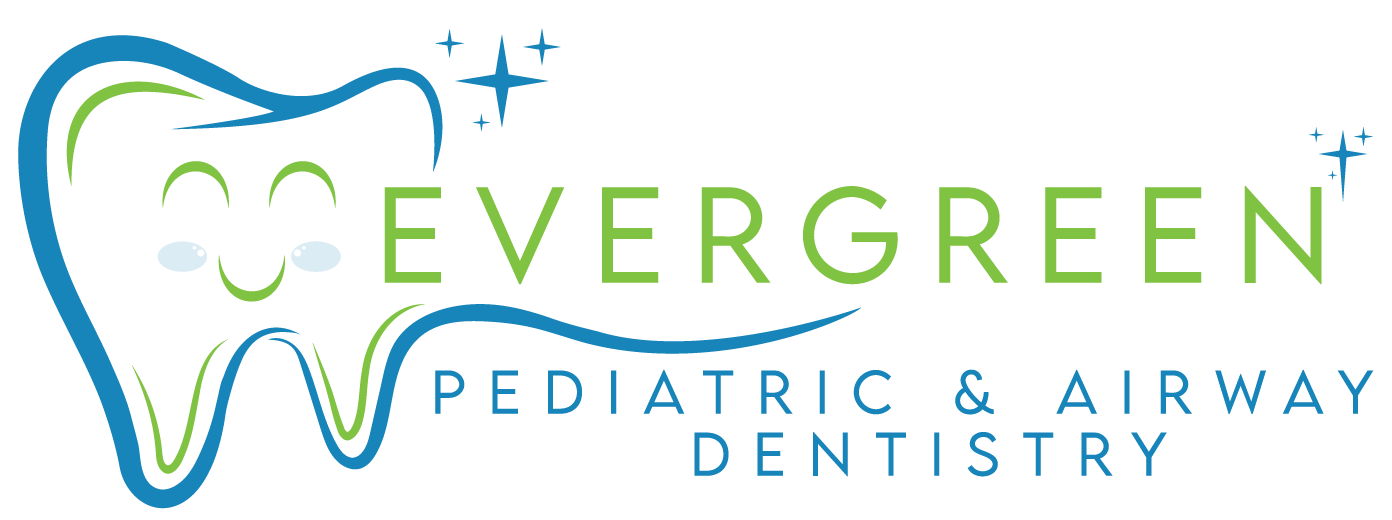Are you looking for effective ADHD therapy in Kirkland, WA? You might be surprised to learn that the usual suspects—genetics and brain chemistry—might not be the only culprits when it comes to ADHD and ADD. Keep reading, and see what the actual problem might be.
Often overlooked, environmental factors and prenatal exposures could also have a significant influence. However, there’s an important and often ignored possible suspect: poor sleep and airway issues. This could be a major factor, if not the outright cause of your child’s ADHD symptoms.
This revelation sheds light on the daily battles your child faces, struggling to focus, control impulses, and remain still. These challenges ripple through their school performance and gnaw at their self-esteem, enveloping their days in frustration and blocking their path to success.
This ongoing struggle is a harsh reality for many children, leaving families begging for solutions that address these underlying issues. Dr. Susan is here to help, keep reading to learn how she can!
What Is ADHD?
ADHD, or Attention Deficit Hyperactivity Disorder, is a neurological condition typically diagnosed in childhood and persisting into adulthood. It is characterized by several distinct behaviors:
- Inattention: Children with ADHD often struggle to maintain focus. They might overlook details, become easily distracted, and fail to follow through on instructions.
- Hyperactivity: Kids diagnosed with this disorder display excessive energy. They might squirm, talk excessively, or have difficulty remaining seated.
- Impulsivity: These children may act hastily, leading to frequent interruptions, snap decisions, or unplanned risks.
ADHD doesn’t only affect kids’ academic performance; it also influences all aspects of their lives, including personal relationships. Health professionals diagnose ADHD through discussions with parents and teachers and by observing the child’s behavior.
While conventional treatments for ADHD include medications, behavioral therapy, and educational interventions, early intervention is crucial. But what if other underlying factors are contributing to these ADHD symptoms?
How ADHD Affects Children & Parents
Living with ADHD can be very hard for children and parents, it affects both their personal and academic lives significantly. Here’s how it impacts them:
For children:
- Focus Issues: Children may struggle with maintaining attention, making school and hobbies difficult.
- Impulsivity: This can cause social and safety issues, potentially leading to conflicts and accidents.
- Hyperactivity: Excessive energy often disrupts quiet activities and family times.
- Social Challenges: Difficulties in interpreting social cues may result in isolation and troubled friendships.
- Emotional Regulation: Sudden emotional outbursts are common, complicating emotional management.
- Low Self-Esteem: Constant correction and teasing can diminish confidence and the willingness to engage in new activities.
- Time Management: Organizational challenges can lead to missed assignments and disorganized daily routines.
For Parents:
- Constantly managing and supporting their child’s needs can be emotionally and physically draining.
- Navigating educational and healthcare systems to find effective support adds additional stress.
- Concerns over their child’s future and well-being can be a persistent source of anxiety.
- Managing ADHD can be expensive for parents, from medical appointments and treatments to educational support and therapy.
It’s important for adults to understand and support children to help manage these effects.
Common ADHD Symptoms in Children
Wondering if your child’s behavior points to ADHD? There are two main types of symptoms:
Inattentive symptoms make it hard to focus or stay organized. A child may:
- Struggle to pay attention during tasks
- Make careless mistakes
- Forget to complete chores or schoolwork
- Lose track of belongings
- Seem not to listen when spoken to
- Dislike long mental tasks like homework
Hyperactive/impulsive symptoms lead to constant motion and interrupted focus:
- Fidgeting or squirming when seated
- Trouble staying seated
- Excessive talking or interrupting
- Inability to play quietly
- Always “on the go”
- Impulsive behaviors without thinking
ADHD, predominantly inattentive is when a child mainly shows inattentive symptoms. ADHD, predominantly hyperactive/impulsive is when hyperactivity and impulsiveness overshadow other issues.
ADHD, combined presentation is when both types of symptoms are pronounced. This is the most common type of ADHD diagnosis.
In addition to the hallmark symptoms above, an ADHD child may:
- Struggle socially due to impulsiveness
- Have emotional outbursts or mood swings
- Act defiant or refuse to comply with rules
- Perform poorly academically despite good intelligence
If you’ve noticed these behaviors, don’t panic. Every child acts out or loses focus occasionally. But if problems are frequent and persistent, an ADHD evaluation could help.
ADHD Diagnosis for Your Child
If you suspect ADHD, the first step is to schedule an appointment with a pediatrician. Describe the behaviors that concern you. Ask about getting a referral to a specialist like a developmental pediatrician, child psychologist, or child psychiatrist.
These experts can conduct a comprehensive ADHD evaluation. Testing will check for ADHD and rule out other possible conditions like:
- Learning disabilities
- Mental health disorders
- Hearing or vision problems
- Neurological disorders
- Sleep disorders
ADHD and Pediatric Sleep Disorders: Exploring the Connection
Recent studies highlight a significant link between ADHD and sleep disorders, which may aggravate ADHD symptoms. Children with ADHD frequently experience sleep-related issues such as:
- Sleep Apnea: Interrupted breathing during sleep reduces oxygen levels.
- Restless Leg Syndrome: Leg discomfort disturbs sleep onset.
- Delayed Sleep Phase Syndrome: Challenges in falling asleep at conventional times.
- Excessive Daytime Sleepiness: Overwhelming tiredness during daytime hours.
These sleep disorders and airway can hurt sleep quality, affecting the brain’s function in regulating attention, emotions, and impulses, thereby intensifying ADHD symptoms. Furthermore, common ADHD medications may also disrupt sleep, perpetuating a cycle of poor sleep and symptom exacerbation.
Is Your Child’s ADHD Related to a Sleep Disorder?
If your child displays any ADHD symptoms, it’s important to explore whether a sleep disorder could be influencing their behavior. A simple checklist can help identify if conditions like sleep apnea are factors:
- Does your child snore loudly or have pauses in breathing during sleep?
- Do they frequently wake up at night or have difficulty falling asleep?
- Are they often overly tired during the day or require many naps?
- Is your child having issues like bedwetting or sleepwalking?
- Will your child often wake feeling tired, despite sleeping enough?
- Are they having trouble focusing or controlling impulses?
If your child answers “YES” to any of these questions, it may indicate a sleep disorder, and you should consider having them screened for one.
ADHD Therapy and Managing Sleep Disorders
Effective management of sleep disorders can significantly improve ADHD treatment outcomes.
Here are some strategies:
Behavioral Sleep Interventions: Enhancing sleep routines is crucial. This includes setting a regular bedtime, limiting screen exposure before sleep, and maintaining a tranquil sleep environment. Techniques like reading or taking a warm bath before bed can also help.
Treating Sleep Disordered Breathing: Immediate treatment for conditions like sleep apnea is vital, involving surgeries or devices like CPAP machines to ensure better breathing at night.
Natural Remedies and Dietary Changes: Adjusting diet to reduce sugar and increase nutrients like magnesium and omega-3s, along with herbal supplements, can support better sleep and ADHD management.
Medication Review: It’s essential to collaborate with a healthcare provider to adjust ADHD medication to minimize sleep disturbances, possibly altering dosages or types of medication.
For the best advice on treating ADHD and related sleep issues, it would be a good idea to speak with Dr. Susan. She can help you decide if treatments like the Vivos oral appliance are right for your child.
Exploring the Vivos Treatment for Airway & ADHD
The Vivos treatment offers a novel, non-medical approach to managing ADHD therapy by enhancing sleep-related breathing. Here’s a quick look at how it works:
- Fitted Oral Appliance Therapy: Uses a custom-fitted oral appliance designed for each individual’s dental structure.
- Expanding Arches: Focuses on expanding the dental arches to increase mouth and airway space.
- Non-Invasive Solution: A comfortable, easy-to-use alternative to surgery, working naturally with the body’s structures.
This innovative method addresses ADHD symptoms by targeting underlying issues with breathing and sleep, providing an effective alternative to traditional medication.
Take Action Today
If your child struggles with ADHD in Kirkland, WA, I highly recommend consulting with Dr. Susan Kim of Evergreen Pediatric Dentistry & Airway.
Dr. Susan takes a whole-body approach to treating ADHD and other childhood development issues. She understands that oral health, airway function, sleep, nutrition, and nerves all interrelate.
Dr. Susan’s mission is to help each patient reach their full potential. She partners with families to get kids the comprehensive care they need to thrive.
She also works closely with specialists like occupational therapists, speech therapists, and sleep doctors. Her integrative and multi-disciplinary ADHD therapy addresses the whole-body imbalances that magnify symptoms.
Here’s how Dr. Susan at Evergreen Pediatric & Airway Dentistry can help improve your child’s airway & sleep:
- Initial Exam: We conduct a comprehensive screening to detect any sleep disorders.
- Overnight Sleep Study: If required, we perform an overnight take home sleep study to gather detailed data on sleep disturbances.
- Results Analysis: A sleep specialist will analyze your child’s test results and give you a diagnosis.
- Personalized Treatment Plan: Dr. Susan crafts a tailored treatment plan to specifically address your child’s airway issues, aiming for restful nights.
Does your child need thoughtful ADHD support? Contact Evergreen Pediatric Dentistry & Airway to schedule a comprehensive exam with Dr. Susan. She will listen deeply and develop a tailored treatment plan to help your child thrive.
Let’s work together to ensure your child’s nights are as restful as they should be.
Schedule Your Child’s Free Consultation Today!





